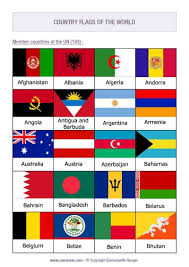Unveiling the Beauty of Destination Weddings: A Celebration of Love and Adventure

The Magic of Weddings: A Celebration of Love and Unity
Weddings are a timeless celebration of love, unity, and commitment. They mark the beginning of a new chapter in the lives of two individuals, coming together to create a bond that is unbreakable. From the moment the couple says “I do,” to the joyous festivities that follow, weddings are a magical experience that bring families and friends together to witness and celebrate the union of two souls.
Every wedding is unique, reflecting the personalities and values of the couple. Whether it’s an intimate gathering in a backyard or a lavish ceremony in a grand ballroom, weddings are a symbol of hope, happiness, and everlasting love. The exchange of vows, rings, and promises creates a sacred bond that will withstand the test of time.
From choosing the perfect venue to selecting the right flowers and decor, every detail of a wedding is carefully planned to create an unforgettable experience for all who attend. The music, food, and atmosphere all contribute to setting the tone for this special day, creating memories that will be cherished for years to come.
As friends and family gather to witness the union of two hearts, there is an overwhelming sense of joy and unity in the air. Weddings have a way of bringing people together, fostering connections and strengthening relationships. It is a time to celebrate not only the love between the couple but also the love shared among those who have come to support them on their journey.
In conclusion, weddings are more than just ceremonies; they are celebrations of love, unity, and hope. They remind us that no matter what challenges life may bring, love has the power to conquer all. So let us raise our glasses to toast to love, laughter, and happily ever afters!
7 Essential Tips for a Stress-Free and Joyful Wedding Planning Experience
- Start planning early to secure your desired venue and vendors.
- Set a budget and prioritize what is most important to you for the big day.
- Create a timeline or checklist to keep track of tasks and deadlines.
- Communicate openly with your partner and family members about expectations and decisions.
- Don’t forget to take care of yourself amidst the wedding planning stress.
- Consider hiring a wedding planner or coordinator to help with logistics and coordination.
- Remember that the most important thing is celebrating your love and commitment, so enjoy the process!
Start planning early to secure your desired venue and vendors.
To ensure a smooth and stress-free wedding planning process, it is essential to start early in securing your desired venue and vendors. By beginning the planning process well in advance, you increase your chances of booking the perfect location and hiring the best vendors for your special day. Popular venues and vendors tend to get booked quickly, especially during peak wedding seasons, so early planning is key to securing your top choices and creating the wedding of your dreams.
Set a budget and prioritize what is most important to you for the big day.
Setting a budget and prioritizing what is most important to you for your big day is a crucial tip when planning a wedding. By establishing a budget early on, you can ensure that you allocate your resources wisely and avoid overspending. Prioritizing what matters most to you, whether it’s the venue, the photographer, or the entertainment, allows you to focus on those key elements that will make your wedding truly special and memorable. This approach helps you make informed decisions throughout the planning process and ensures that you stay within your financial means while still creating the wedding of your dreams.
Create a timeline or checklist to keep track of tasks and deadlines.
Creating a timeline or checklist is a valuable tip when planning a wedding. By organizing tasks and deadlines in a systematic manner, couples can stay on top of all the details involved in preparing for their special day. A timeline helps to ensure that no important elements are overlooked and that everything is completed in a timely fashion. From booking vendors to sending out invitations, having a clear plan in place can help reduce stress and make the wedding planning process more manageable.
Communicate openly with your partner and family members about expectations and decisions.
Effective communication is key when it comes to planning a wedding. It is important to openly discuss expectations and decisions with your partner and family members to ensure that everyone is on the same page. By sharing your thoughts, concerns, and desires, you can work together to create a wedding day that reflects the values and vision of all involved. Open communication fosters understanding, collaboration, and harmony, leading to a more meaningful and memorable celebration of love and unity.
Don’t forget to take care of yourself amidst the wedding planning stress.
Amidst the whirlwind of wedding planning stress, it’s crucial not to forget to take care of yourself. Remember to prioritize self-care during this hectic time, whether it’s through exercise, meditation, or simply taking a moment to breathe and relax. Your well-being is just as important as the wedding preparations, so make sure to carve out time for yourself to recharge and rejuvenate. By taking care of yourself, you’ll not only feel more balanced and centered but also be better equipped to handle the challenges that come with planning a wedding.
Consider hiring a wedding planner or coordinator to help with logistics and coordination.
When planning your wedding, it’s wise to consider hiring a wedding planner or coordinator to assist with logistics and coordination. These professionals are experienced in bringing together all the intricate details of your special day, ensuring that everything runs smoothly and according to plan. From selecting vendors and managing timelines to handling any unexpected issues that may arise, a wedding planner or coordinator can alleviate stress and allow you to fully enjoy your celebration without worrying about the behind-the-scenes logistics. Their expertise and guidance can make a significant difference in creating a seamless and memorable wedding experience for you and your guests.
Remember that the most important thing is celebrating your love and commitment, so enjoy the process!
When planning your wedding, it’s essential to keep in mind that the most significant aspect of the event is celebrating your love and commitment to each other. Amidst all the details and logistics, remember to cherish the journey and enjoy the process of creating a memorable day that reflects your unique bond. Embrace the joy, excitement, and love that surrounds you as you prepare for this special occasion, and let it be a reminder of the deep connection you share with your partner. By focusing on the love that brought you together in the first place, you can savor every moment leading up to your wedding day and truly appreciate the significance of this milestone in your lives.








